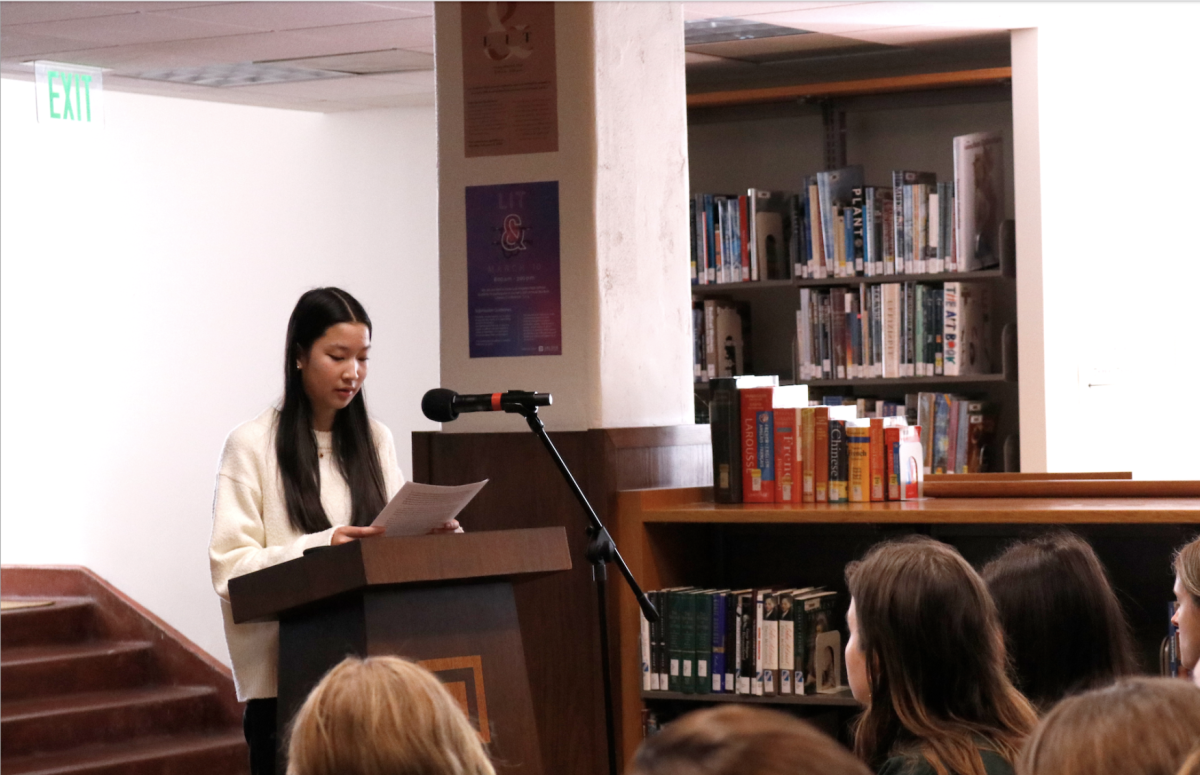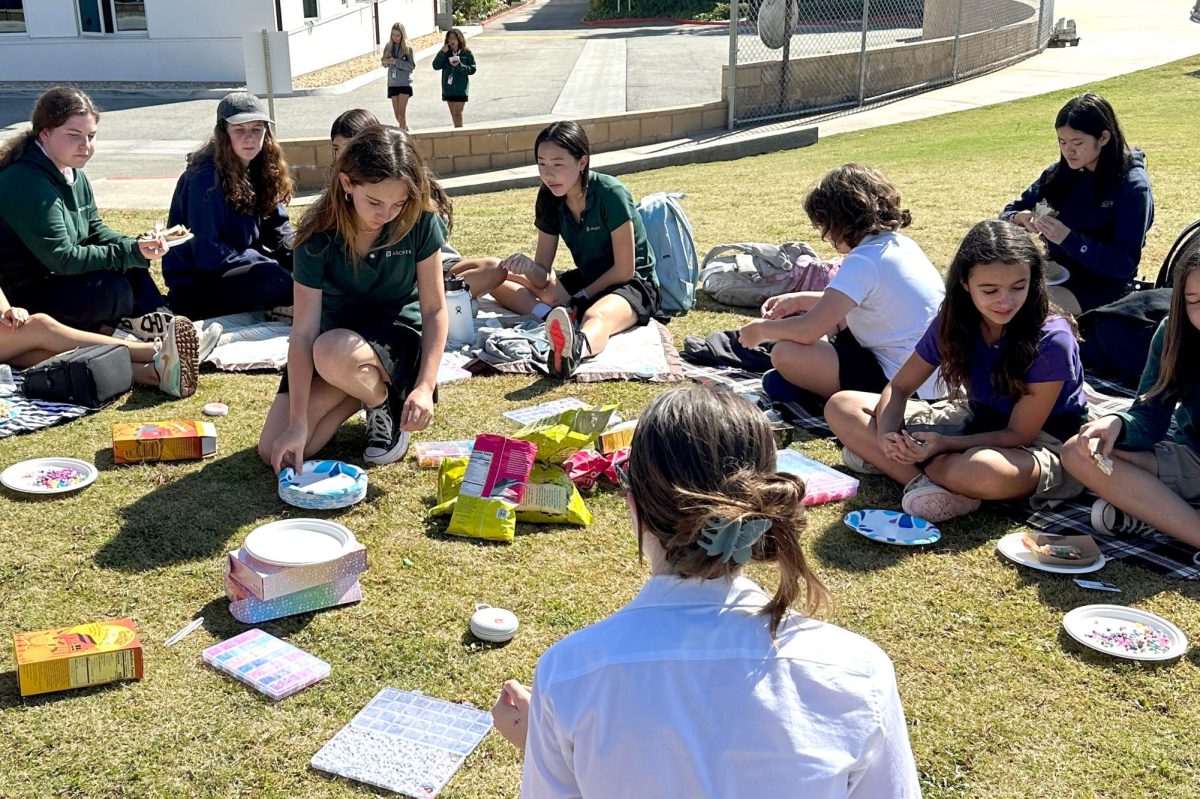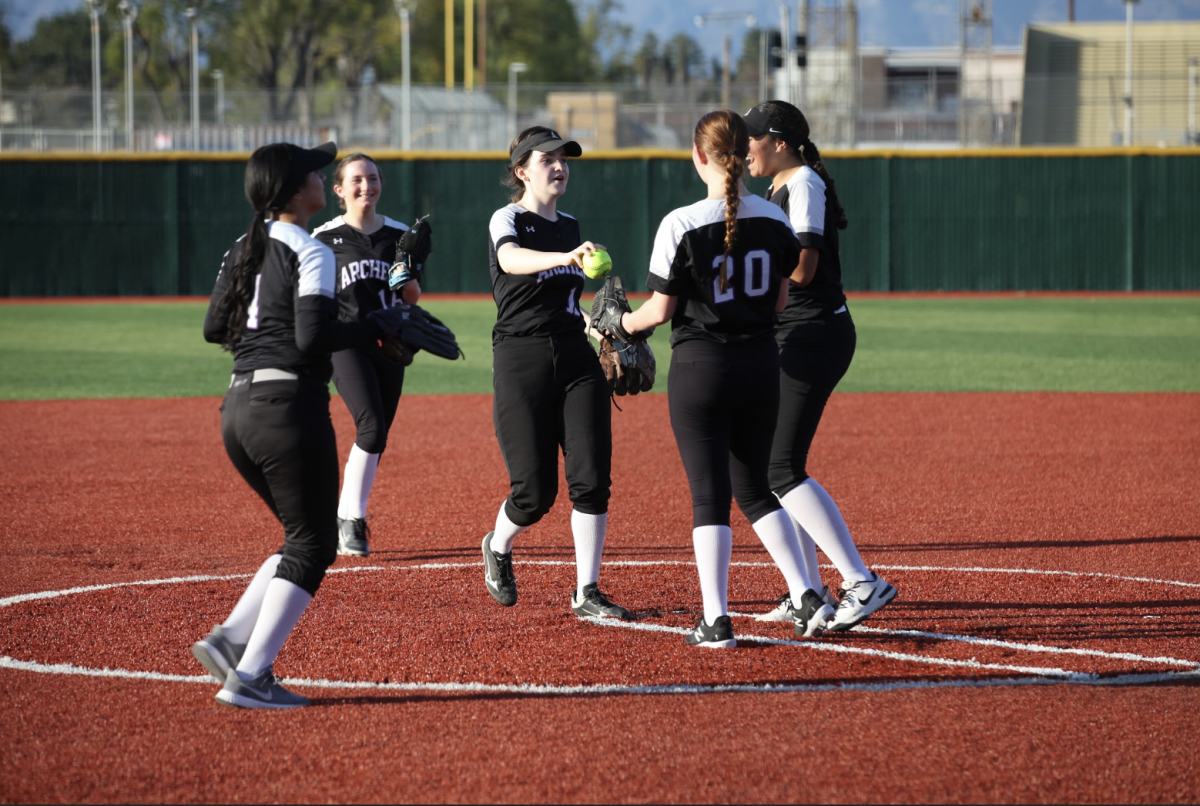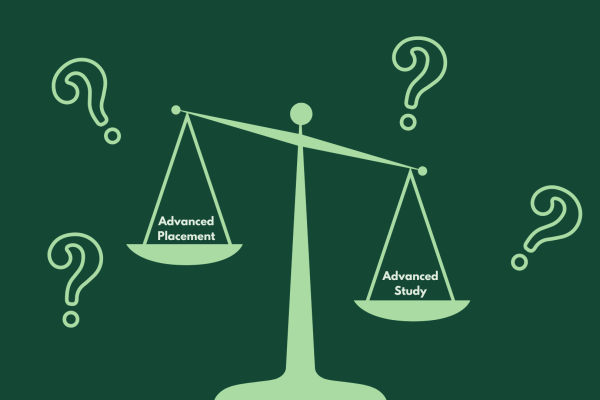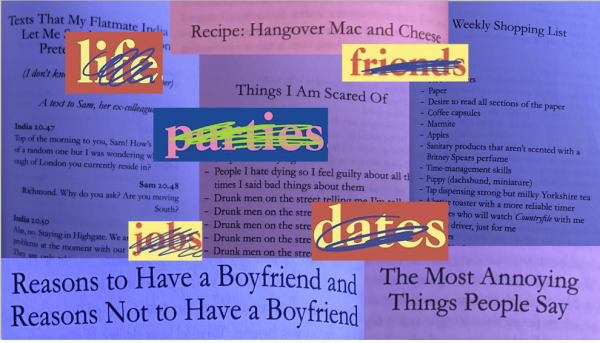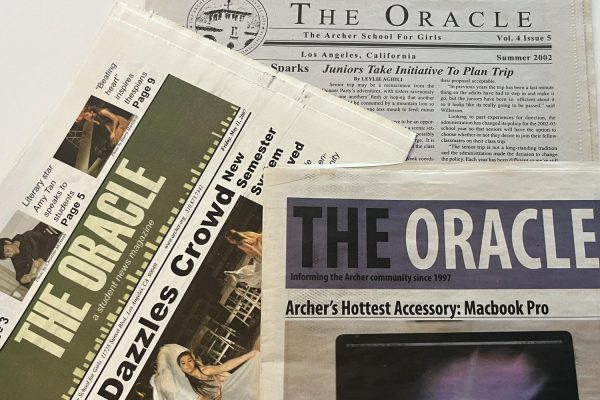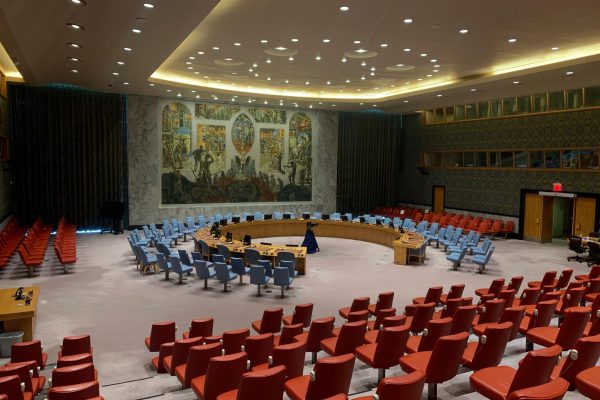Op-Ed: Reducing carbon emissions one footprint at a time
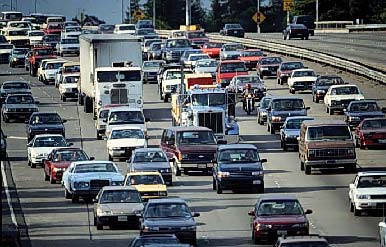
Vehicles drive on a freeway. Greenhouse gas emissions from cars contribute to air pollution and detrimental health. Photo courtesy of California Air Resources Board.
Did you know that Southern California has the worst air quality in the nation? Every time I drive, sitting hopelessly in countless hours of traffic on the 405 freeway, I can’t help but notice the ominous clouds of smog that seem to envelop the entire city of Los Angeles. Smog is a type of air pollution that is largely derived from vehicular emissions. In order to effectively address global warming and decrease the amount of harmful chemicals affecting public health within our atmosphere, we need to reduce our carbon emissions by having fewer cars on the road. I strongly encourage individuals to dedicate one day out of their busy schedules to prioritize staying out of their cars by any means necessary, whether it is by walking, biking, carpooling or taking public transportation.
According to the United States Environmental Protection Agency, transportation is the largest contributor to global warming, producing over 28% of greenhouse gas emissions. Since the development of the automobile as a consumer commodity, the resulting increase in emissions has transformed the greater landscape of the United States. Today, we rely on cars even more due to the fact that Los Angeles, a city notorious for its outrageous traffic, is paved for car travel. Although owning a car used to make it easier for people to commute long distances, in our current city infrastructure, the introduction of more transportation options has made it easier to reduce the number of cars on the road, and, in turn, decrease air pollution. In Los Angeles, our new and improved Metro, efficient public transportation systems and protected bike paths allow individuals to alleviate serious traffic conditions and reduce their carbon footprint.
Not only does transportation create smog, but it is also a leading cause of health problems worldwide. In 1992, the California Air Resources Board conducted a study on the effects of long term air pollution exposure to children from ages 10 to 18. Researchers found conclusive evidence that exposure to ground level ozone and particle matter largely contributed to serious health effects, and specifically harmed children’s lungs for life. Additionally, Steven LaDochy from California State University articulates that poor air quality has been directly associated with asthma, chronic obstructive pulmonary disease, lung cancer and premature death. Thus, implementing eco-friendly transportation methods are essential to reducing emissions and promoting cleaner air so that future generations may live with less harmful toxins infringing on their health.
I believe I have a solution for this detrimental issue. I propose starting a campaign called “Walking Wednesdays” to influence both students from the Archer School for Girls and my local LA community to dedicate every Wednesday to use of a mode of transportation other than cars. People can walk, bike, use the Big Blue Bus public transportation system —which has announced that it is reducing emissions by 90% by using renewable natural gas — and the Los Angeles Metro. Additionally, I want to create flyers to put around my school and local community to increase outreach, as well as create a hashtag for social media so that people can send photos and ultimately spread the word to the broader Los Angeles community and beyond. Furthermore, by walking or biking, people will be able to implement exercise into their lives every week, which will deliver oxygen and nutrients to their tissues, and overall, will provide significant health benefits for their bodies.
The excess amount of fossil fuels within our atmosphere is a serious problem for both our planet and our health. By using alternative modes of transportation, individuals will be able to clear congested freeways and concurrently reduce fuel emissions. Current EPA administrator Scott Pruitt wants to revoke fuel emission and fuel economy laws in California and 17 other states. These laws have helped to reduce pollution in the last 50 years. California and these 17 other states are suing to keep these regulations intact for the sake of our environment. If the state values clean air, than they should back my plan as well.
So next time you get into your car, don’t just think about the carbon footprint you want to leave on the environment, but also think about how to reduce it.




![Freshman Milan Earl and sophomore Lucy Kaplan sit with their grandparents at Archer’s annual Grandparents and Special Friends Day Friday, March 15. The event took place over three 75-minute sessions. “[I hope my grandparents] gain an understanding about what I do, Kaplan said, because I know they ask a lot of questions and can sort of see what I do in school and what the experience is like to be here.](https://archeroracle.org/wp-content/uploads/2024/03/grandparents-day-option-2-1200x800.jpg)
